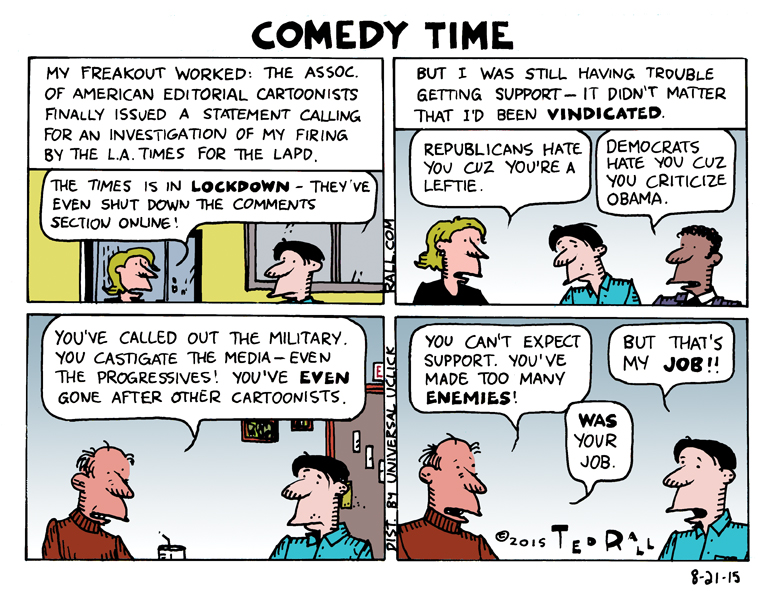There are two kinds of media censorship: direct and self-directed.
In an authoritarian regime, nothing gets published or broadcast without state approval. I watched the inner workings of direct government control of the press during a visit to Turkmenistan. Every magazine and newspaper was run out of the same office. Many were edited by the same people, all wearing the same lapel pins, an image of the country’s then-dictator, Sapamurat “Turkmenbashi” Niyazov.
This didn’t exactly make for a bunch of scintillating reads: the “our harvest rocks” stories were direct heirs of propaganda in the Soviet Union, of which the Turkmen SSR was a remote outpost. But it did offer clarity. The Turkmen people have never suffered from any illusions about the nature of their political system. They knew they weren’t free.
Censorship exists everywhere. In the so-called “free world,” however, political and cultural gatekeepers work to try to fool citizens into thinking that it does not. This morning, on NPR, I took note of an in-house ad in which an employee of the network claimed that it reports “unbiased news.”
There is, of course, no such thing as unbiased reporting or analysis. I’ve been listening to NPR for decades. In stories about foreign policy crises, never once have I heard an interview with a pacifist, someone who is against all military action. Whether it’s about Iran or ISIS, the “debate” is always between two varieties of interventionism: harsh (sanctions, i.e. “containment”) and harsher (bombs). If NPR’s “Marketplace” has ever interviewed a communist about why capitalism sucks and should be replaced, I missed it. Biased? You betcha. Always. Inevitably.
Here in the United States, censorship is usually self-directed. No one from the State Ministry of Propaganda calls The New York Times to tell them what’s fit to print. They make those decisions on their own. But those calls are informed by who those editors are — the elite schools from which they graduated (Columbia Journalism School), their class background (parents rich enough to send them to Columbia J-School), input from their friends and colleagues (other people whose parents are rich enough to send them to Columbia J-School). Who they are determines what makes it into print.
Which is often motivated by a desire not to offend those in power.
Major American media outlets are run by people who believe that they need access to those in power, which is to say government officials and corporate executives, in order to do their jobs. The Los Angeles Times, where I worked until July, fired me, apparently as a favor to the police. You see, I drew cartoons critical of police brutality and incompetence. The cops, understandably, didn’t like that. So they ginned up an excuse — since disproven — for the paper to get rid of me. Now they’re in a pickle. They know they messed up, but if they admit it they’ll hurt their relationship with the LAPD by revoking their favor to them. That might mean, the next time there’s a big O.J.-type crime story, that the LAPD refuses to feed them information.
A cartoonist colleague working in the Midwest tells me that, after he drew an anti-police cartoon, the cops stopped talking to his paper’s reporters. If the paper wants tips from the police, they’ve let his editors know, all they have to do is fire their cartoonist.
America, land of innovation, has now conceived of yet a third kind of media censorship: economic.
Last night, like millions of Americans, I turned on my TV to watch the third Republican presidential debate. Since I only subscribe to the basic cable package, however, I couldn’t get it. It only aired on CNBC, which where I live is on premium cable. (It didn’t livestream online either.)
I pay north of $120 a month for cable TV and broadband Internet access. This makes me a relatively privileged member of the mediarati. But not privileged enough. To watch a political debate — a civic ritual that used to be, and still ought to be, on every TV channel and radio station, free, by law — I would have to bump that up to something closer to $200. This is really, really wrong.
As a result, I — and other political commentators — are reduced to commenting on a debate as seen through the lens of media elites who have those $200 a month to spend.
Many millions of Americans, particularly young people, have “cut the cord” and watch only streamed television and movies. You can’t accuse them of apathy if you won’t let them participate in a presidential campaign.
Here’s how niche CNBC is. Debates sponsored by FoxNews and CNN averaged 24 and 23 million viewers, respectively. (After CNN offered livestreaming, Fox followed suit.) CNBC’s all-time viewing record is 3.9 million, during the 2002 Winter Olympics.
Economic censorship is gross. But, much like the brazenness of censorship under a dictatorship, putting politics behind a paywall serves as an unintentional signifier. The system is not of, by or for you, the people.
It’s the ultimate triumph of pay-to-play electoral politics: democracy without voters.
(Ted Rall, syndicated writer and the cartoonist for ANewDomain.net, is the author of the new book “Snowden,” the biography of the NSA whistleblower. Want to support independent journalism? You can subscribe to Ted Rall at Beacon.)
COPYRIGHT 2015 TED RALL, DISTRIBUTED BY CREATORS.COM

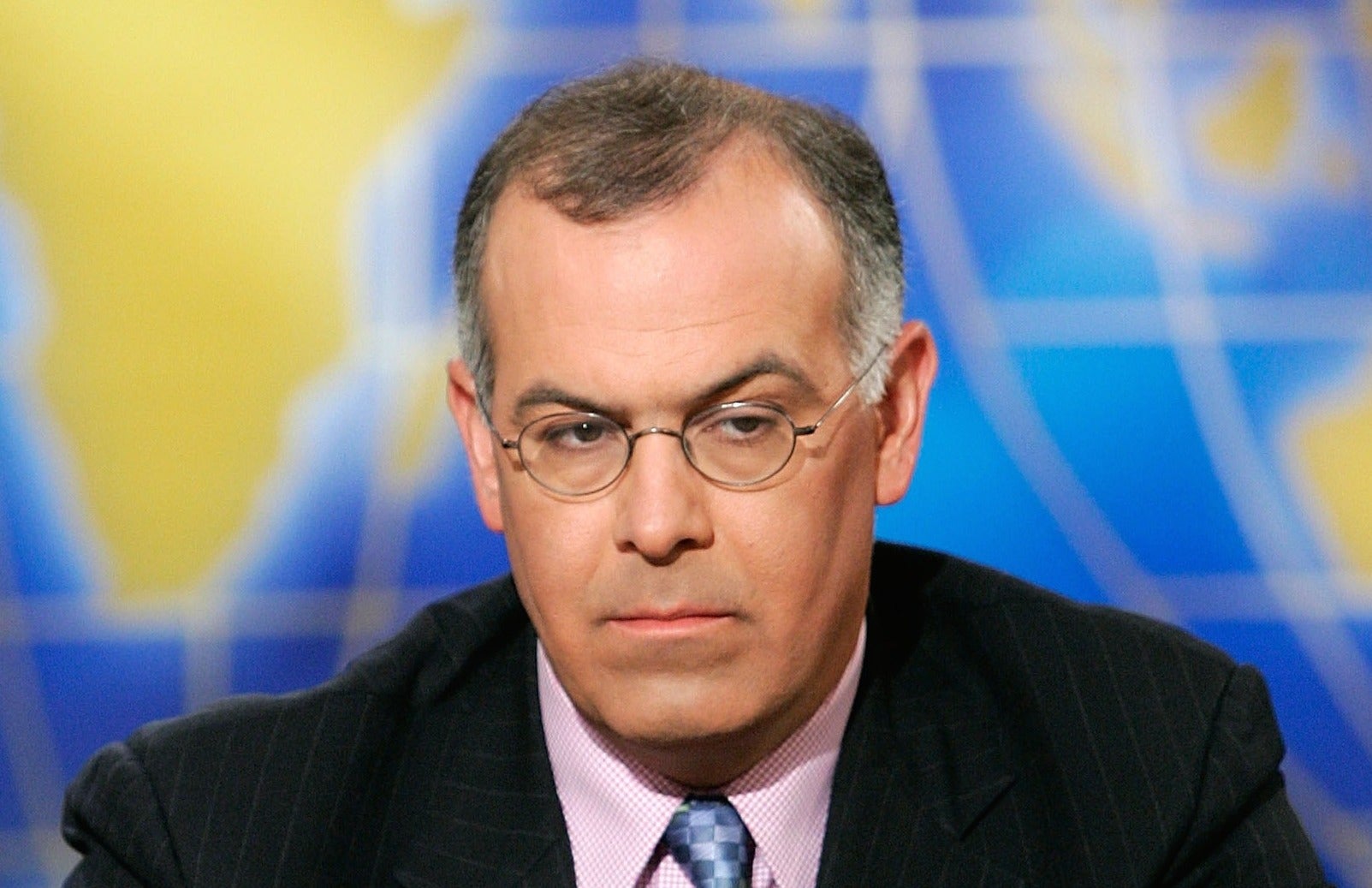 Stipulated: David Brooks isn’t that smart.
Stipulated: David Brooks isn’t that smart.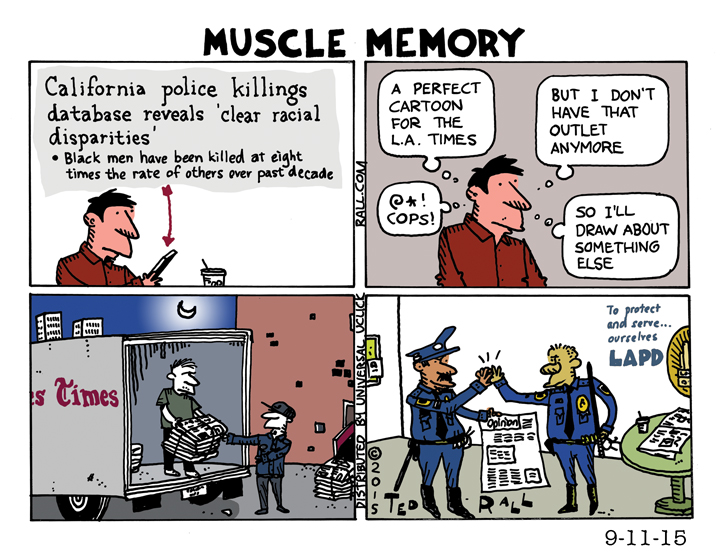
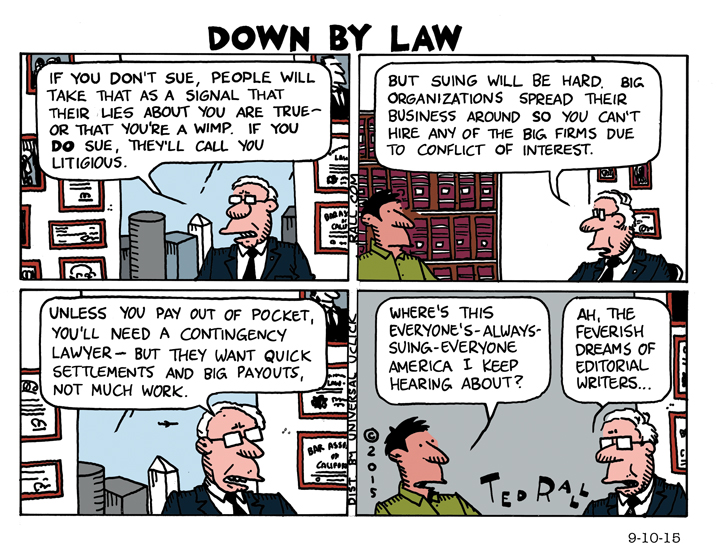
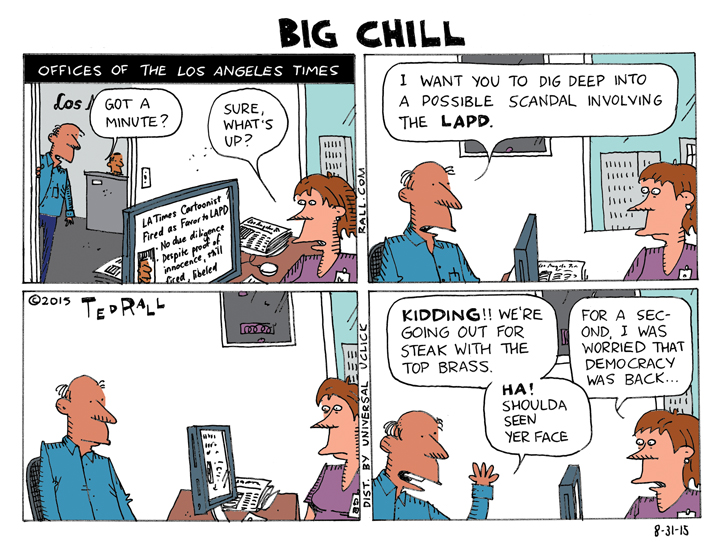

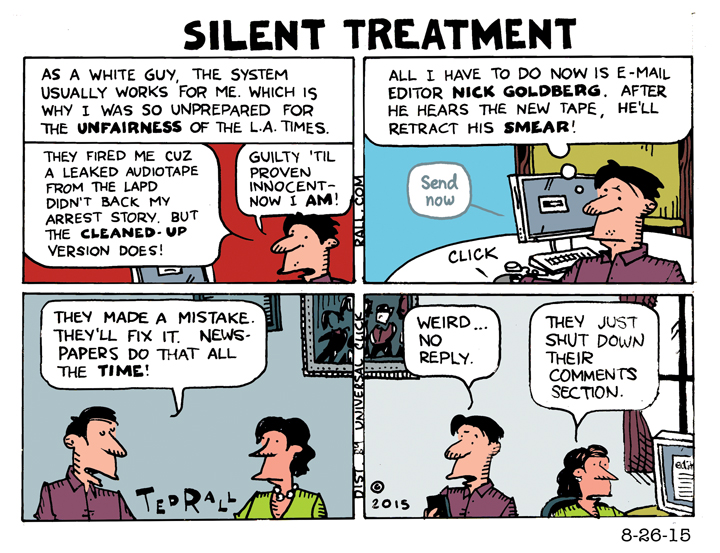
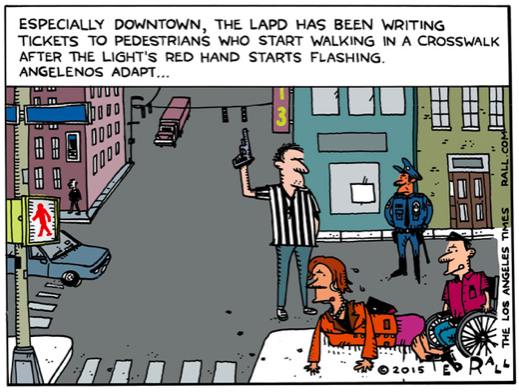 Almost two weeks ago, the LA Times fired me as their editorial cartoonist, where I’d been since 2009.
Almost two weeks ago, the LA Times fired me as their editorial cartoonist, where I’d been since 2009.